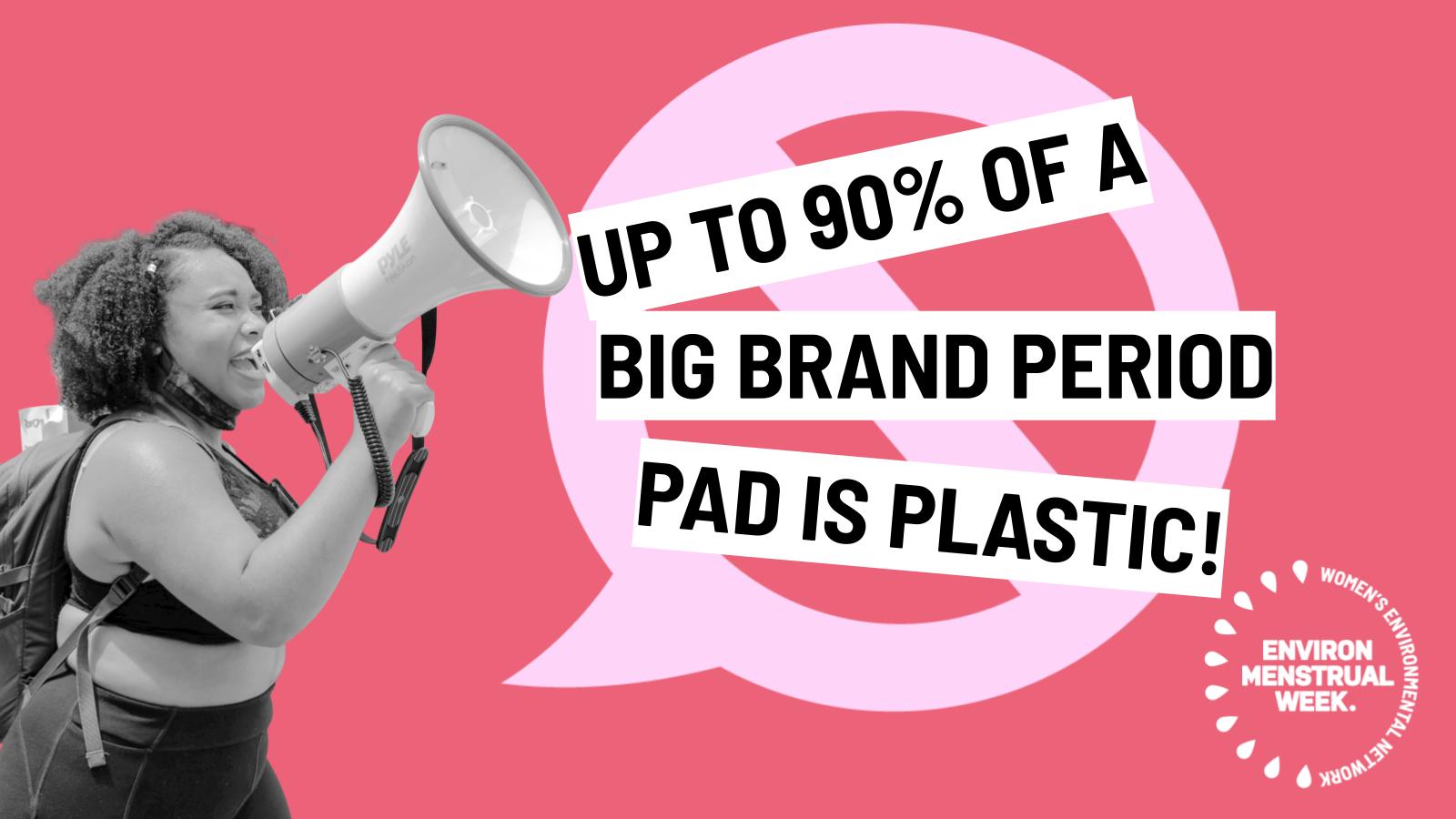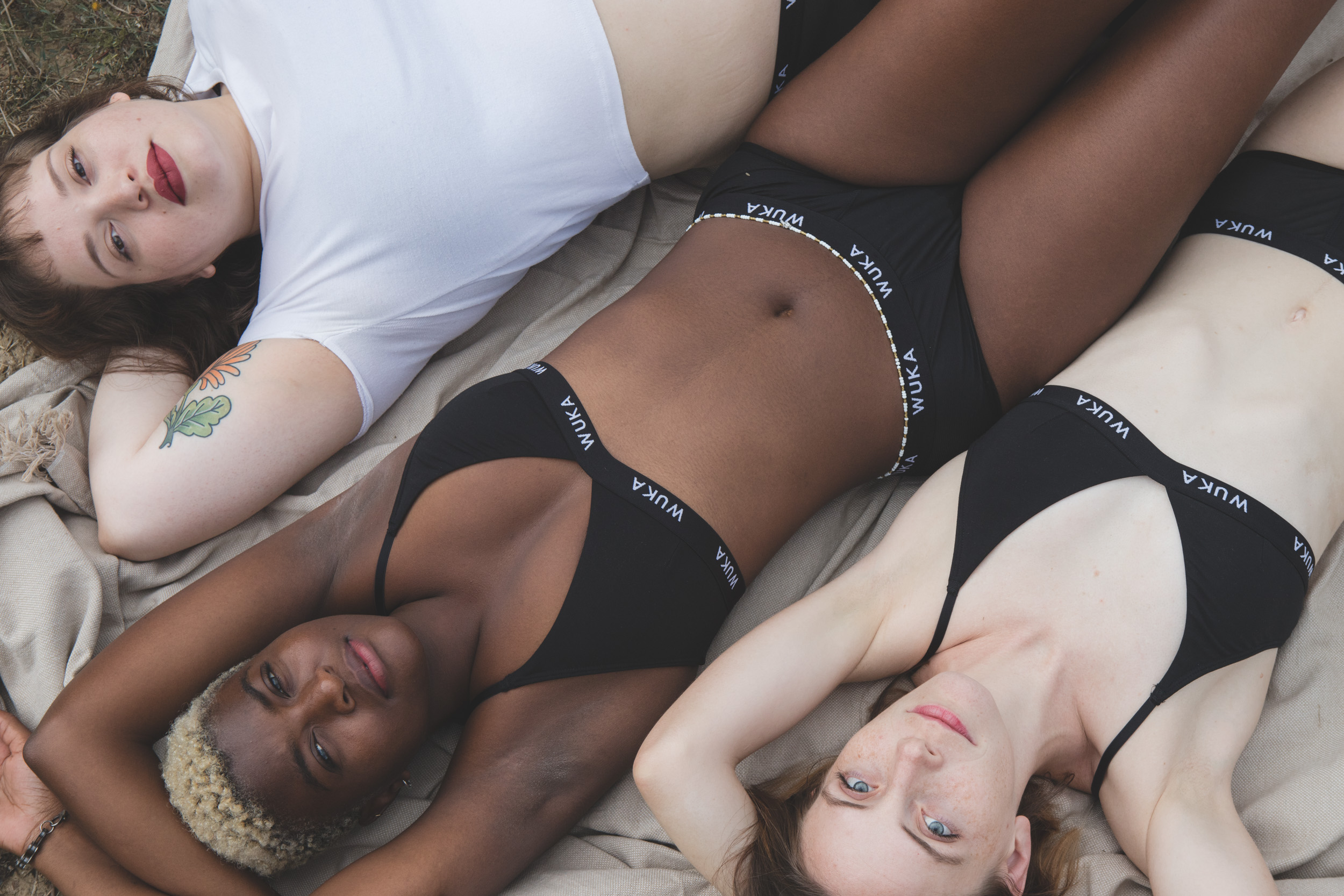Environmenstrual Week: In Conversation with WUKA
Here at Surfers Against Sewage, we want to see an end to plastic pollution on UK beaches by 2030 and to do this we need to challenge industry and businesses to remove plastic from their products and also switch to reusable products. This applies to period products too.

As part of 2021 Environmenstrual week of action, we had the chance to talk all things period, plastic and the environment with the UK’s first resuable period product brand (and our partner!), WUKA.
How and why did WUKA start?
“Ruby grew up in Nepal, where shame about periods was widespread. Nachune is the Nepalese word for period which basically translates as ‘untouchable’. When she started her period, she experienced a form of Chapaudi, now illegal in Nepal.
During menstruation, she was sent to her aunt’s house and wasn’t allowed to go out in the sun, look at men, or touch plants – as it was believed that she would kill them – just because she was having a period. Like other girls, she was given old sari rags to use for the bleeding, which happened to be reusable and eco-friendly, but not hygienic. They weren’t leak-proof nor comfortable, and didn’t work for her when she played sports!
When she arrived in the UK, she was astonished by the wide range of menstrual products available on the shelves, but quickly realised that most of them were neither comfortable nor leak-proof, and they certainly were not eco-friendly. So she started WUKA after realising that although period products were accessible in the UK, they were neither sustainable nor reusable.”
How do disposable period products affect the environment around us, especially when it comes to our oceans?
“Disposable period products affect the environment because it is still not a commonly known fact that pads are usually made from 80% plastic. Our disposable period products fill up landfill, and contribute to plastic pollution in oceans – it breaks down into smaller pieces known as micro-plastics and fibres, harming sealife. It’s also estimated that 50% of people in the UK still flush their disposable period products down the loo, which results in 1.5 – 2billion being flushed yearly. This flows into the sewage system, rivers and our oceans, polluting them.”

What is your best tip for breaking down the taboo of period plastic conversation?
“The best tip we can offer is to merely open up the conversation, and make these facts known. Because it is not commonly known that disposable period products like pads are made up of 80% plastic, there is therefore not an awareness of how this affects us all. By spreading awareness with facts that aren’t commonly spoken about, this can help bring light to the issue in a way that’s educating and supportive, and together, we can all break down the taboo of the conversation. For example, did you know it takes 500 years for disposable plastic period products to decompose?”
What advice would you give to someone who’s making the switch to try re-usable period products?
“To just give it a go! It may feel foreign at first, but it’s much more convenient, comfortable and you’re saving the planet through something so natural. At WUKA, our mission is to make period pants as accessible as possible – and also as taboo-breaking. By opening up the conversation about periods, this helps to reduce the stigma of it being an ‘awkward’ topic and more of a normal, and educational topic. One pair of WUKA is equivalent to saving 200 tampons from being used – and they last up to 2+ years. Just by giving it a go, you’re a part of the change!”
Are re-usable period products accessible for everyone?
“It’s part of our mission to try and make them as accessible as possible. Period poverty remains an issue, and it is why we are campaigning to remove the period pants tax. The UK Government has abolished the tax on disposables, but not on reusable period pants yet. Periods are not and should not be a luxury, and we are doing everything we can to try and make them accessible for everyone, through cost and awareness.
Get involved
The Environmenstrual campaign, set up by the Women’s Environmental Network aims to break the taboo and raise awareness of the hidden plastics and toxic chemicals in conventional products and the impact of flushing them. They also challenge industry to change what they’re doing and encourage people to switch their products to reusable or organic, plastic free options.
To find out more about Environmenstrual week and get discount codes for some of the awesome companies making these innovative products, head over to WEN.
